Committing to Theater
Making Art and Making Family
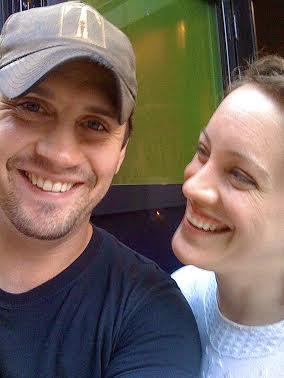
Photo courtesy of Daniel Talbott
and Samantha Soule.
Some American theater careers emerge from the coasts and the flyover states and explode on the scene. Sixteen years ago, Daniel Talbott and Samantha Soule, two members of what has become an Off-Broadway theatrical family-by-choice met up in New York City from disparate edges of the United States and have been professionally linked ever since.
Dan, Sam, and I met on a sunny June morning in the West Village, not far from the Cherry Lane Theatre on Commerce Street where a production of A Fable by David Van Asselt would wind up its run in a few days. Directed by Dan, with Sam in a starring role, written by another colleagues and frequent collaborator, A Fable was the most recent of a long line of theatrical family affairs. We set about unpacking their connections to each other, their views about making art in the city, finding artistic compatriots, founding and working with organizations that produce theater together, and their reflections about A Fable.
Finding Theater and Meeting at Juilliard
When Dan and Sam met as two of the twenty original members of Juilliard's Group 31 in the fall of 1998, they were drawn to each other’s outsider-ness. Sam recalled, “We were the kids dying our hair purple and orange. Juilliard could sometimes feel like a very posh place to me and it felt safe to be scrappy with Daniel. I love him for that.”
Dan came from San Francisco, where he had already begun acting as a kid. Sam, desperate to get out of her Massachusetts “rural big football playing Americana high school,” tried sports and took dance classes and in dance and theater felt the bliss of finding something she could do all day.
Dan first saw and was intrigued by Sam sitting on a radiator at a dorm introductory meeting, with short dyed red hair, a bandana, and overalls. Sam recalled revealing herself to Dan: “‘ I don’t know anything, but I’m trying desperately to pass like I do. How do you find someone safe enough to say: I don’t know what I’m doing, can you help?’ And that felt like one of the first honest moments that I had at that school.”
Finding Work and Making Work: Rising Phoenix + Playwrights + piece by piece
Dan decided to be involved in three different theater companies during and immediately after Juilliard that all continue to inform his personal and professional lives.
Rattlestick Playwrights Theater, one of Dan and Sam’s artistic homes, was co-founded by David Van Asselt in 1994 to nurture emerging playwrights. In 1999, Dan started Rising Phoenix Repertory after completing his first year at Julliard to feed his downtown playwriting and directing impulses. Dan and several other Rising Phoenix Rep members became the literary management staff at Rattlestick. Also in 1999, Wendy vanden Heuvel founded piece by piece productions to produce socially, politically, and spiritually relevant theater and film.
It’s a moving triumvirate, with different partners involved in different projects. “It’s like a big family,” Dan reflected. “There are times we are in different houses and we all do different things. And there are times we’re in the main house and we’re all doing it together.”
Rattlestick took on a new level of commitment to community building and playwright investment through producing five plays by a single playwright at different West Village venues in August and September 2013. The Hilltown plays provided a gift to the theater community—assembling five plays by Lucy Thurber written over a period of years, presenting their thematic development, connection, and evolution. Daniel directed Scarcity at the Cherry Lane and Sam acted in Killers and Other Family at the Axis. And Dan is currently writing a play with Lucy. The family grows and evolves, and supports its members.
Collaboration and Community: Fighting Up
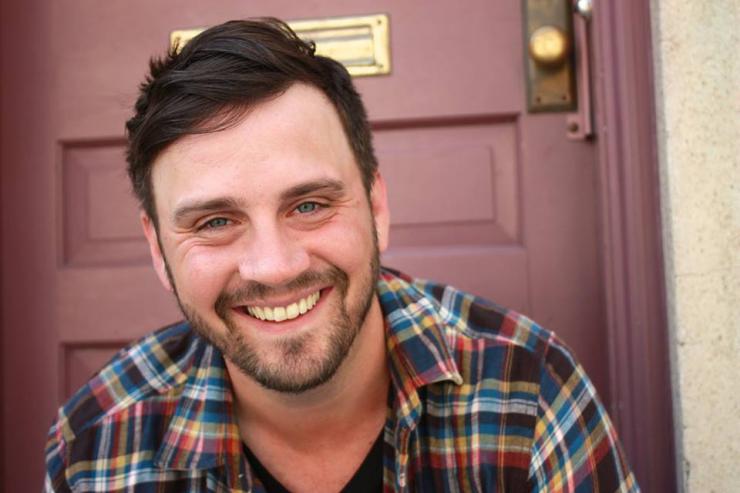
Sam and Dan are deeply connected through productions and shared philosophies and a role in each other’s family lives—Sam is godmother to Dan’s son, for example. Sam draws a larger picture of herself as an actor and member of a craft within the relationships people build with one another. “There’s something that for me in this business, in this industry, in this profession that we lost along the way: collaboration and community,” to which Dan added “loyalty” and Sam added “mutual respect.” Sam continues, “We rise and thrive together, or we all sink. So finding those people who you trust to tell you the truth even if it’s ugly, those people that you can call even when you’re not working on the same thing together and ask: what do you think, talk to me, you know?”
Sam and Dan are deeply connected through productions and shared philosophies and a role in each other’s family lives
Sam referenced a series of ghost plays by playwright Crystal Skillman created with Dan and Rising Phoenix Rep called The Telling Trilogy. Sam’s character in one of them, she noted, had to be in a dark, angry place of loss and grief, and she struggled with how to play the energy of that emotional state. To Dan she recalled, “I remember you saying that you have to treat it like drowning, like you’re going to swim up, even though there are weights at your ankles. Like your body instinctively is going to fight up—the action is to try to get up. In our world of artists,” she continued, “I want to find the people that are fighting up, and fighting brave.”
Theater as an Act of Giving: Advancing the Story and Telling the Truth
Dan described approaching theater from a point of generosity:
I think the basis of theater is an act of giving. It’s not about you. There’s no caste system in theater when it’s at its best. Theater doesn’t, on a pure level, function without selflessness, and without giving, and without loyalty, and without generosity, and a kind of huge heartedness. In the end theater is a service industry where you are giving something and you have to proudly be in service, not to yourself and your own career in the end, but to something else that’s bigger. Of course you have to feed yourself. Of course you have to feed your family. But I don’t think that’s ever an excuse to make it about you.
Actors can be speaking different emotional languages, but the intentions in Dan’s mind can carry you through, “as long at the center of what you’re doing is the play and not yourself, and your ego, and your own bullshit, and your own career.” Sam drew upon the sports background she shares with Dan (soccer for her, baseball for him) for metaphorical support:
The goal was to move the ball. The ball is the object—not you, not me, the ball. And then you have to function as a team in order to advance the ball. In story telling it’s the story, we have to advance the story. We’ll be passing it back and forth to each other, and you have to set up the shot for the person who’s in position to make the important point.
Dan described our culture at war with how theater is made:
We live in a culture that’s obsessed with the singular—it’s obsessed with labels, it’s obsessed with money, and it’s obsessed with fame. Theater is going to have a really tough time in that culture because, at its heart, it’s an art form that is a great equalizer. It’s a truth box. It shows back to us exactly what we are at every level. So if you’re bored with theater, if you’re pissed off with theater, if you’re pissed off at the way it’s sold, or the way the theaters are built, or the way we sell concessions, or the way we talk about it or the way we review it—all theater does, which is its genius, is show us back to us, everything we are. It’s not even a mirror; it’s a truth space. If you’re bored with the action of theater, you’re bored with yourself.
For Dan, bravery and self-sufficiency are the answer.
We need to be braver and get bigger. I think of it as starving. If theater is so important to us and our plays are food for us, and you’re starving and in your mind there are only twenty restaurants in the city, and those twenty restaurants won’t let you in, are you gonna starve to death or are you going to learn how to make your own food? The beauty of theater is that you can do it anywhere and it’s for anybody.
Seven Different Styles: A Fable
Rising Phoenix Rep, piece by piece, and Rattlestick produced A Fable by David Van Asselt, directed by Dan, which closed at end of June 2014 at the Cherry Lane. A Fable is a biblical good-and-evil confluence of styles involving angels and devils, and human bad deeds. Dan reflected,
I love what a monstrous tapestry it is. I love that it’s kind of ugly and strident and loud and musical and quiet at times and comedic at times, and then brutal and then suddenly Brechtian and then suddenly Buster Keaton-y and then suddenly—I’m going to sing. I love that it is its own creature. I think the best description I can think of it is what it must have been like in the 70s at La MaMa.
Playwright David Van Asselt rewrote and cut throughout the run of A Fable. The process of corralling a beast infused the imagery Dan used to describe his efforts as director. “What was wonderful was working on a clear journey through the chaos of that world. I thought of it a lot like a giant circus. Life can be that way a lot of the time. You’re doing one thing and it turns on you and it becomes another thing. It’s a many-headed monster.”
Sam reflected on the effort and the bravery of the project. “What gets me jazzed is feeling all the different muscles this piece requires firing all at once, the way each pairs with the next to get the whole beast moving! Dan’s work requires you use all your muscles. You have to go big.”
Skinning Your Knees and the Intimate Deepness
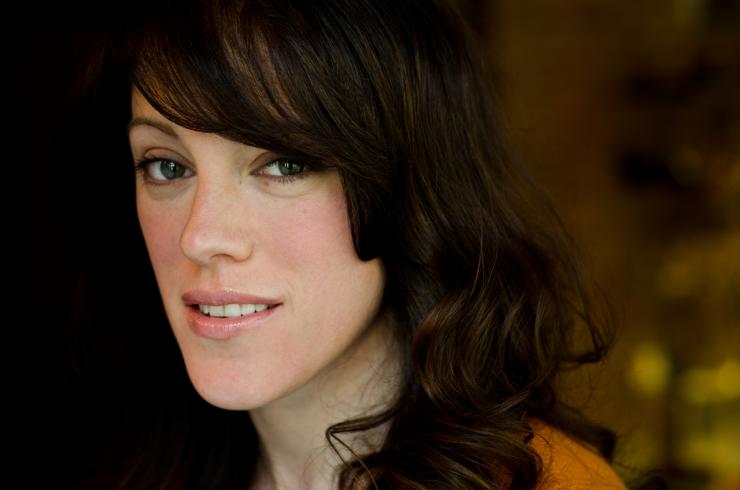
Sam’s background in sports and in dance informs her approach to the physicality and presence of theater. “You expect to trip and fall. You’re gonna hit the deck. It’s gonna hurt. You’re gonna skin your knees. You’re gonna have injury—that’s part of using your body as a tool.”
Sam described the Rattlestick version of storytelling as “a sit in” where you “get in the room and get with this thing and be with these people in this critical defining moment. And it might happen really slowly, and you may just have to settle in. It’s an intimate deepness.” During the 2013 production of Lucy Thurber’s Killers and Other Family, the intense family drama in the intimate Axis Theatre created a sense of audience complicity that Sam loved.
What was amazing was how often I heard audience members speak of culpability. Of feeling that: I’m in the room, I feel so afraid myself that it makes me inert, and it makes me powerless. And then you try to control your reactions so they don’t notice you. And you start to experience actual terror, and you start to understand abuse.
Sam wants that real thing in her theater. “That’s a little bit of what we all hunt for when you go to the theater is to be a participant in an event. I want to leave with my heart racing, I want to leave feeling like: whoa, I wouldn’t have gotten that at home watching Netflix in my pajamas.”
Sam and Dan bounce from theater to television to film, and work to keep theater at the core. Sam described herself as ping-ponging, project wise, “careening from one style to the other, to the opposite, because I can expend everything I can in this one, knowing that an entirely different section from me is going to get used by the next.” For her it’s all about letting it all out and moving on. “Use everything you have—All of it. Blow it all out, and then swing to the next thing.”

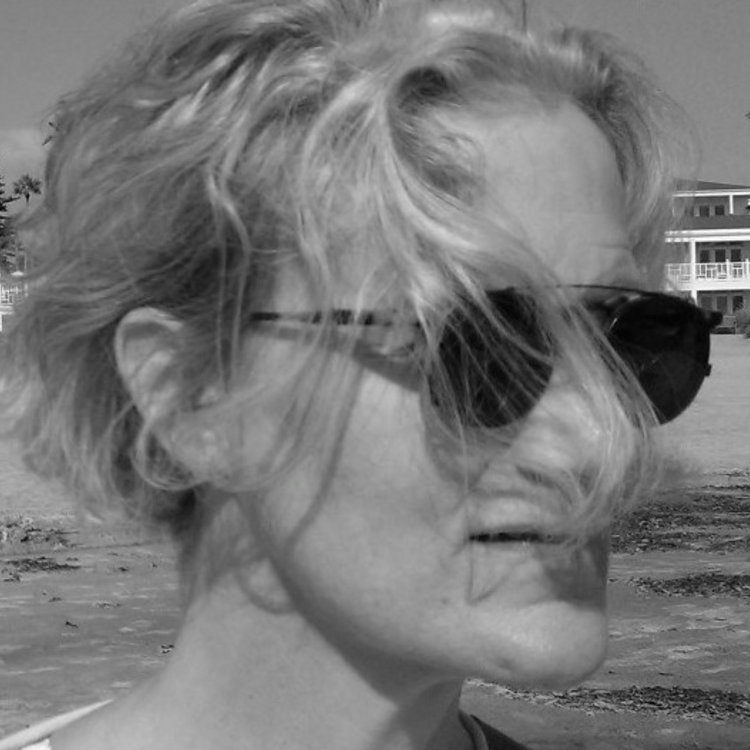
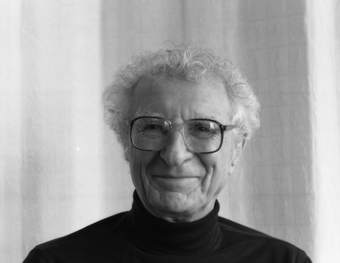

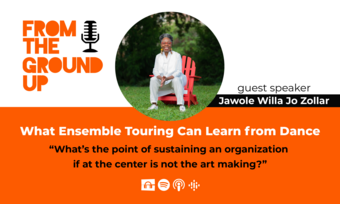





Comments
The article is just the start of the conversation—we want to know what you think about this subject, too! HowlRound is a space for knowledge-sharing, and we welcome spirited, thoughtful, and on-topic dialogue. Find our full comments policy here
Gwydion -- why am I not shocked that the "service" theme is one that you mirror in your own philosophy? And all ... it's always a sincere treat to speak with Danny any time that happens ... and this was my first conversation with Sam. The first of many, I hope. Real gems.
Theater as service.
http://www.suilebhan.com/se...
Terrific profile. Thanks, Martha -- and Dan and Sam! Very inspiring.
I love this statement - "We live in a culture that’s obsessed with the singular—it’s obsessed with labels, it’s obsessed with money, and it’s obsessed with fame. Theater is going to have a really tough time in that culture because, at its heart, it’s an art form that is a great equalizer. It’s a truth box. " And then I love this statement “Use everything you have—All of it. Blow it all out, and then swing to the next thing.” That's what I have done in NYC with Stage Left Studio. It's been awesome, but my rent is too high, and ticket sales continue to go down, so in the next year I am swinging to the next thing and taking my business west. I love that artists are self-contained. We can do it anywhere. It's about telling the truth in our own particular box.